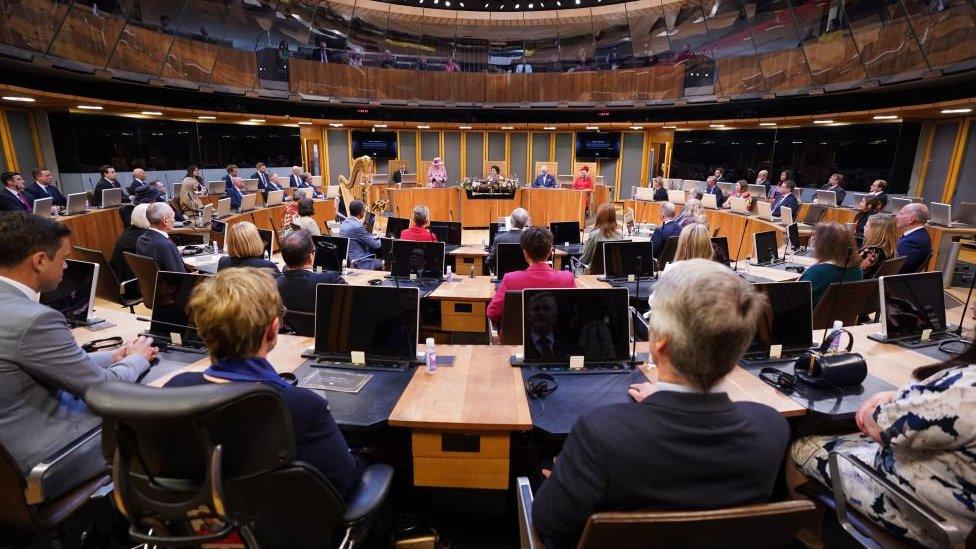Senedd: Welsh Labour agrees to plans for more politicians in Welsh Parliament
- Published
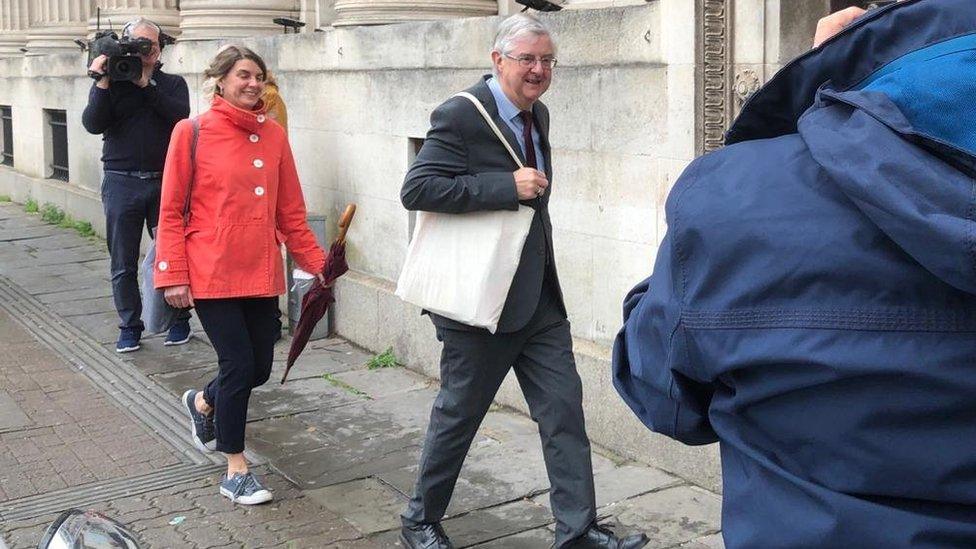
Mark Drakeford arrived for the conference in Cardiff Bay on Saturday afternoon
Welsh Labour has agreed to back leader Mark Drakeford's proposals to expand the Senedd and change how it is elected.
A specially-held conference in Cardiff Bay agreed with plans that will see the number of Senedd members increase from 60 to 96.
Conference delegates backed the proposals 76% for, 24% against.
The method that Members of Senedd are set to be elected by had provoked opposition from some in the party.
The GMB, Community and Usdaw unions had warned the plans could make it harder for Labour to retain power.
But the first minister's new system was supported by Wales' largest unions Unison and Unite, as well as the postal workers group the CWU.
Constituency Labour parties (CLPs) overwhelmingly supported the reforms, with only Merthyr Tydfil, Rhondda, Swansea East and Llanelli rejecting them.
The Welsh Conservatives, who are opposed to the principle of more Senedd members, said Labour should put the changes to a referendum.
Earlier estimates from 2020 had put the cost of 30 extra Senedd members at £12m a year.
The decision means Welsh government ministers can now draw up legislation, which will need the support of two thirds of the Senedd to pass.
Mr Drakeford said his win on Saturday was "decisive".
He added the decision "will strengthen Wales' democracy, secure the future of our Senedd and ensure people across Wales are better represented - reflecting the modern Wales in which we live".
A Labour MS told BBC Wales Mark Drakeford had a "duty to remain" as first minister until after the next election "so that the new system can bed in and deliver stable government".
He said it was the Welsh Labour "substantial authority, leadership and political capital that's taken this through".
But Mr Drakeford said there was no change to his plan to stand down before the next election.
He said the comments were "flattering, but I think it exaggerates very much the influence of an individual".
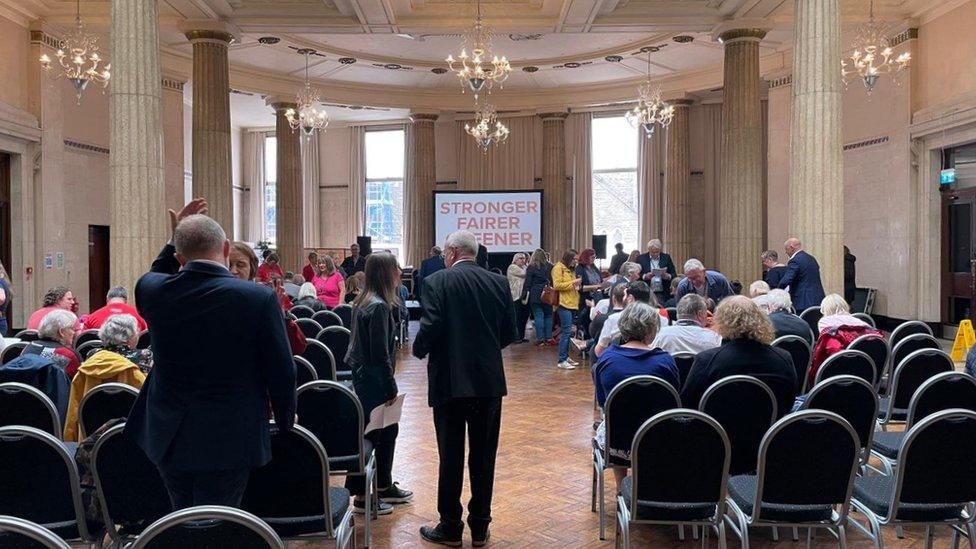
Delegates discussed the changes at a venue in Cardiff Bay on Saturday afternoon
The requirement for two thirds of the Senedd to agree the changes meant Labour has had to seek a deal.
Mr Drakeford agreed the package with Plaid Cymru leader Adam Price, with the intention to bring in the changes in time for the next Senedd election in 2026.
The new system would subject parties to a gender quota, with the aim of encouraging better representation of women.
Voters will get one vote to choose from lists of candidates nominated by Wales' parties, with candidates elected using proportional representation.
This aims to reflect how people voted, but the Welsh Liberal Democrats have raised concerns the system chosen could freeze them out.
Backers of a larger Senedd say the current 60-member set up struggles to deal with the law-making and taxation powers the parliament has gained since 2011.
Ahead of the conference Mick Antoniw, a minister in the Welsh government and Labour MS for Pontypridd, said: "The Senedd has to change, it has to grow.
"It has to have the numbers that are necessary to really operate as a parliament."

Mick Antoniw said the Senedd has to change
The way that the system will work at the ballot box - with 16 large, multi-member constituencies - proved controversial with some in the Labour movement.
Labour's Swansea East Senedd member Mike Hedges said on Friday that the large "constituencies is going to make it very difficult for candidates and representatives to be close to voters over such a large area".
Outside the conference Beverley Perkins, of retail union Usdaw, said her union was opposed to the plans because of the absence of "first past the post", which is used for Westminster elections and awards seats based on candidates that win the most votes.
Plaid Cymru had pushed for FPTP to be removed from Senedd elections. Carwyn Jones, Wales' former first minister, said keeping it was "not realistic".
"Nothing is going to be perfect and people will have a range of views," he said. "At the end of the day we have to crystallise around a package that we can all compromise on."
Reluctance
Gerald Parry, a delegate for Unite, said his support was reluctant.
"The simpler you make it, the easier it is to get people out to vote. This is complicated and my fear is it will put more people off and that's the last thing we need.
"We backed it because we didn't want to go against Mark [Drakeford], and I can see that."
Mary Wimbury, a delegate from the Wales Co-operative Party, said it was a "compromise" for everyone.
She would have liked to have seen single transferrable vote used - which is seen by some as more proportional than the D'Hondt system in the Drakeford/Price plan.
"But we cannot let the perfect be the enemy of the good," she added.
Labour 'should do the right thing and have a public vote'
Welsh Conservative leader Andrew RT Davies said: "Mark Drakeford has given Labour members a vote on more politicians, he should now do the right thing and give the Welsh people a vote in a referendum.
"It's clear that a significant part of the Labour movement has serious concerns about these plans and the destruction of the localised link between voters and their elected representatives.
"If the Labour establishment really think this is good for Wales, then they should give the public a say."
Plaid Cymru spokesperson on the constitution, Rhys ab Owen, welcomed the decision, saying it was "a significant and positive moment in our nation's history".
"It is nevertheless disappointing to see some dissent particularly by Westminster MPs. They are on the wrong side of history when it comes to Wales's democratic journey."
Chris Bryant, Labour's MP for Rhondda, was among those in the party that raised concerns.


It was a word we heard time and again speaking to delegates heading in to the conference: compromise.
The principle of more Senedd members was unanimously backed by the party at the last Welsh Labour conference, marking a huge shift in party opinion.
But the proposed voting system has been a much thornier issue, with delegates shuffling in to the conference expressing very little enthusiasm for it.
Nevertheless, the package as a whole received overwhelming support, with some saying it was a personal vote for Mark Drakeford.
Many Labour Senedd members see this as one of the first minister's main legacy projects before standing down ahead of the next election.
Today, Senedd reform, an idea almost as old as the institution itself, took a decisive step forward.
- Published8 May 2024
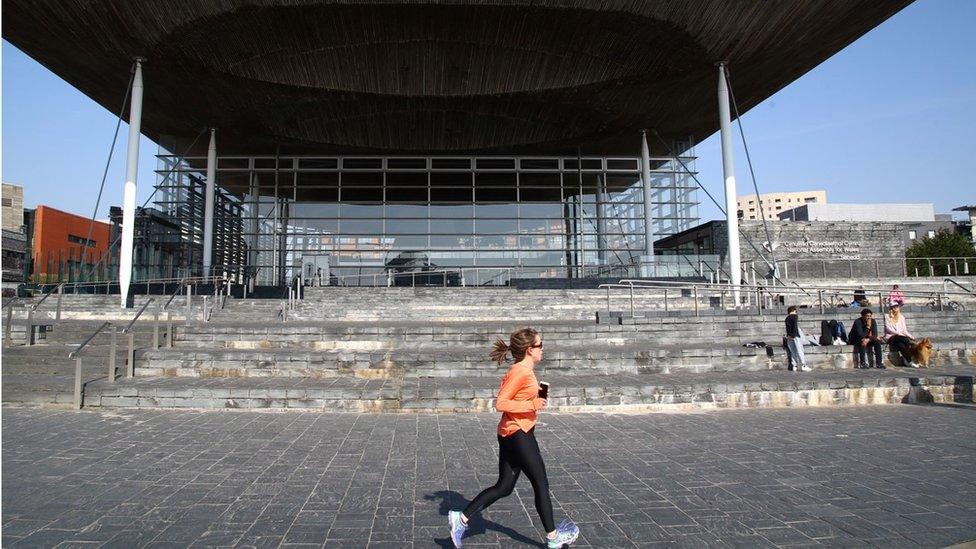
- Published10 May 2022
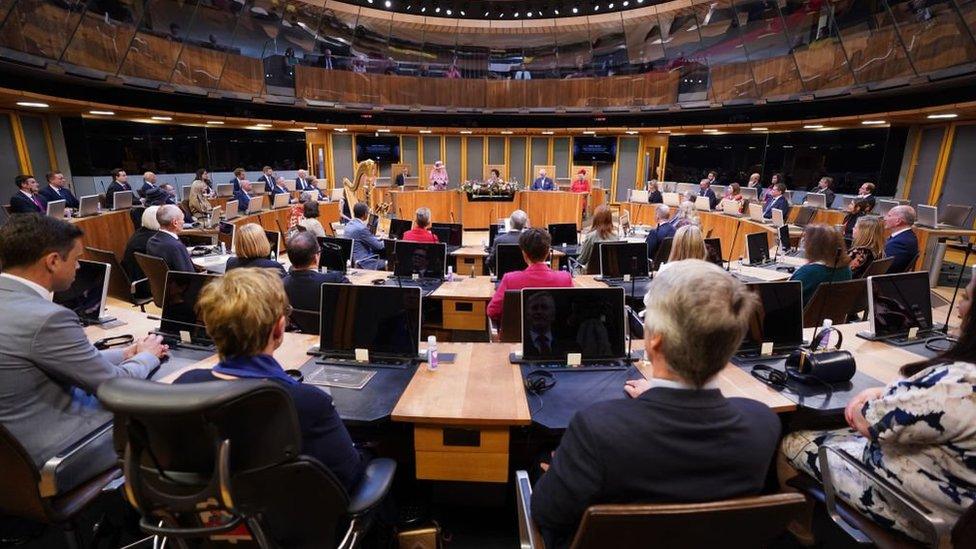
- Published8 June 2022
